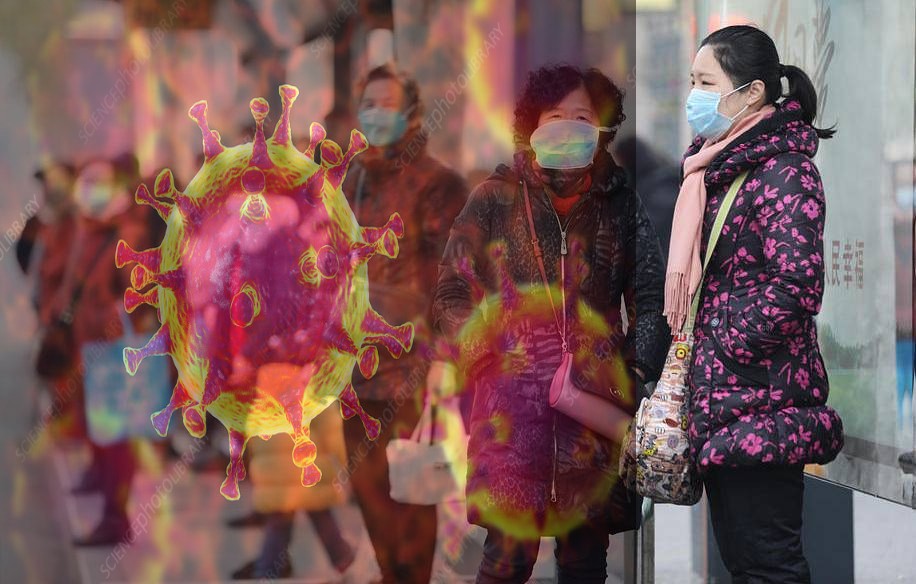Know how to stay protected from the ‘Novel Coronavirus’ that has contaminated Chinese health.

A new virus called novel coronavirus, a cousin of the SARS virus is the reason for an international health emergency. The initial symptom depicted in China and now it has started to spread and people from all around the world are getting contaminated by this virus.
Till date, the total number of people affected by the deadly virus has gone up to 218. Meanwhile, the World Health Organisation (WHO) is holding an emergency meeting in Geneva to decide if the new coronavirus that causes pneumonia-like illness is an international emergency. The discovery of human-to-human transmission comes even as the deadly virus has spread across China and reached three other Asian countries – Thailand, Japan, and South Korea.
On 11 and 12 January 2020, WHO received further detailed information from the National Health Commission about the outbreak.
WHO is reassured of the quality of the ongoing investigations and the response measures implemented in Wuhan, and the commitment to share information regularly.
The evidence is highly suggestive that the outbreak is associated with exposures in one seafood market in Wuhan. The market was closed on 1 January 2020. At this stage, there is no infection among healthcare workers and no clear evidence of human to human transmission. The Chinese authorities continue their work of intensive surveillance and follow up measures, as well as further epidemiological investigations.
Among the 41 confirmed cases, there has been one death. This death occurred in a patient with serious underlying medical conditions.
China shared the genetic sequence of the novel coronavirus on 12 January, which will be of great importance for other countries to use in developing specific diagnostic kits.
The cluster was initially reported on 31 December 2019, when the WHO China Country Office was informed. The Chinese authorities identified a new type of coronavirus (novel coronavirus, nCoV), which was isolated on 7 January 2020. Laboratory testing was conducted on all suspected cases identified through active case finding and retrospective review. Other respiratory pathogens such as influenza, avian influenza, adenovirus, Severe Acute Respiratory Syndrome coronavirus (SARS-CoV), Middle East Respiratory Syndrome coronavirus (MERS-CoV) were ruled out as the cause.
According to information conveyed to WHO by Chinese authorities on 11 and 12 January, 41 cases with novel coronavirus infection have been preliminarily diagnosed in Wuhan City. Of the 41 cases reported, seven are severely ill. This is when the one death, mentioned above, was reported, in a patient with other underlying health conditions. Six patients have been discharged from the hospital. Symptom onset of the 41 confirmed nCoV cases ranges from 8 December 2019 to 2 January 2020. No additional cases have been detected since 3 January 2020.
The clinical signs and symptoms reported are mainly fever, with a few cases having difficulty in breathing, and chest radiographs showing invasive pneumonic infiltrates in both lungs. National authorities report that patients have been isolated and are receiving treatment in Wuhan medical institutions.
According to the preliminary epidemiological investigation, most cases worked at or were handlers and frequent visitors to the Huanan Seafood Wholesale Market. The government reports that there is no clear evidence that the virus passes easily from person to person.
Symptoms:
Symptoms of respiratory disease include fever, cough, sore throat, headache, shortness of breath and breathing difficulties, etc. Health agencies, including WHO, said coronaviruses can cause pneumonia, severe acute respiratory syndrome, kidney failure, and even death.
Precautions:
Currently, there is no specific treatment for the respiratory illnesses caused by human coronaviruses. Perhaps, there are currently no vaccines available that can help prevent the infection. However, all of us can reduce the risk of infection by taking a few steps such as the following:
- Adopt good personal hygiene like washing hands with soap and water for at least 20 seconds
- Keep your hands away from your eyes, nose, mouth
- Avoid close contact with those who are sick and experiencing symptoms
- Avoid contact with sick animals
- Do not go to farms, markets, barns, or other places where dromedary camels and other animals are kept
- Wash your hands properly before and after touching animals
- Avoid starvation or anything that can reduce your immunity
WHO says consumption of raw or undercooked animal products – such as milk and meat – may carry a high risk of infection from a variety of organisms that might cause disease in humans.
